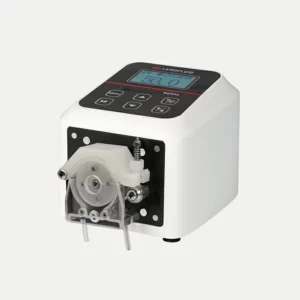Updated on December 1, 2023
What is the high viscosity pump used for?
High viscosity pumps are specifically designed to handle fluids with thick or viscous consistencies. These pumps are capable of efficiently moving fluids that have a higher resistance to flow due to their thickness or high molecular weight. High viscosity pumps find applications in various industries where the transfer or processing of viscous fluids is required. Here are some common uses of high viscosity pumps:
- Food and Beverage Industry: High viscosity pumps are employed in the food and beverage industry for handling products such as sauces, syrups, creams, pastes, oils, and other viscous ingredients. They are used in processes like filling containers, transferring liquids between tanks or vessels, and pumping materials through mixing or blending systems.
- Chemical and Petrochemical Industry: In the chemical and petrochemical sectors, high viscosity pumps are used for transferring and processing a wide range of viscous fluids, including polymers, resins, adhesives, paints, lubricants, and solvents. These pumps ensure efficient and reliable movement of such materials during production, storage, or transportation processes.
- Pharmaceuticals and Cosmetics: High viscosity pumps are utilized in pharmaceutical and cosmetic manufacturing for handling creams, lotions, gels, ointments, and other thick substances. They enable precise and controlled dosage filling, transfer of viscous formulations, and circulation within processing equipment.
- Oil and Gas Industry: In the oil and gas sector, high viscosity pumps play a crucial role in handling heavy oils, bitumen, and other viscous hydrocarbon products. They are used for transferring these substances during extraction, refining, and transportation processes.
- Paints and Coatings: High viscosity pumps are employed in the paints and coatings industry for pumping and transferring high-density materials like industrial paints, coatings, varnishes, and adhesives. These pumps ensure consistent and accurate flow rates for precise application and coating processes.
- Waste and Water Treatment: High viscosity pumps are utilized in waste and water treatment facilities to handle thick sludge, sewage, and non-Newtonian fluids. They assist in transferring, recirculating, or dosing these materials for effective treatment and disposal.
- Mining and Minerals: High viscosity pumps find application in the mining and minerals industry, where thick slurries and abrasive materials need to be transported. They are utilized for pumping mineral concentrates, tailings, slurries, and other viscous mixtures during extraction, processing, and waste management operations.
High viscosity pumps are designed to handle the challenges posed by thick fluids, including their resistance to flow and potential for clogging or shearing. They are engineered with features such as larger pump chambers, robust construction, specialized seals, and enhanced power mechanisms to ensure efficient and reliable operation in handling high viscosity fluids across various industries.
When it comes to high-viscosity liquids, high-viscosity pumps have the following features and applications:
Features:
- Strong resistance: The high viscosity pump is able to overcome the resistance of the high viscosity liquid, through the appropriate design and material selection, ensure that the liquid can flow smoothly, so as to achieve efficient delivery.
- Strong suction capacity: Due to the poor fluidity of high-viscosity liquids, high-viscosity pumps usually have a large suction capacity, which can effectively extract and inhale the viscous liquid to ensure the continuous delivery of fluid.
- Adapt to different viscosities: High viscosity pumps are usually able to adapt to a different range of viscosities and can handle liquids from higher to lower viscosities, providing flexibility and applicability.
- Wear resistant materials: Because high-viscosity liquids may contain particles or have abrasive properties, high-viscosity pumps typically construct the pump body and pump internal parts with wear resistant materials to ensure long-term durability and reliability.
- Special seals: High viscosity pumps are usually equipped with special seals to prevent liquid from leaking or entering the internal parts of the pump. These seals can be adapted to the special requirements of high viscosity liquids and ensure the normal operation of the pump.
Applications:
- Coatings and adhesives: High viscosity pumps are widely used in the coatings and adhesives industry to pump and transport high density substances such as industrial coatings, coatings, varnishes and adhesives. These pumps ensure precise flow control for precise application and coating processes.
- Pharmaceutical and cosmetics: High viscosity pumps are used in pharmaceutical and cosmetic production to handle sticky substances such as creams, moisturizers, gels, ointments, etc. They enable precise and controlled dose-filling, delivery of higher viscosity formulations, and circulation inside the treatment equipment.
- Oil and Gas industry: In the oil and gas industry, high viscosity pumps are used to process heavy oils, bitumen and other viscous hydrocarbon products. They are used to transport these substances during mining, refining and transportation.
- Food and beverage industry: High viscosity pumps are used to handle products in the food and beverage industry such as sauces, syrups, creams, berries, oils and other sticky ingredients. They are used to fill containers, transfer liquids between storage tanks or containers, and pump materials in mixing or stirring systems.
- Chemical and petrochemical industry: In the chemical and petrochemical industry, high viscosity pumps are used to transport and process a wide range of viscous liquids, including polymers, resins, adhesives, paints, lubricants and solvents. These pumps ensure the efficient and reliable movement of these substances during production, storage or transportation.
- It is necessary to select the right high viscosity pump for the specific application and ensure that its material, design and function are appropriate for the specific application requirements. The design and selection of high viscosity pump should consider the viscosity range of liquid, flow requirements, wear resistance, sealing performance, cleaning and maintenance convenience and other factors.
It should be noted that the handling of high-viscosity liquids may put higher demands on the pump’s power requirements and operating conditions, so when selecting and using high-viscosity pumps, the relevant parameters and technical specifications should be carefully considered, and the manufacturer’s recommendations and guidance should be followed.


